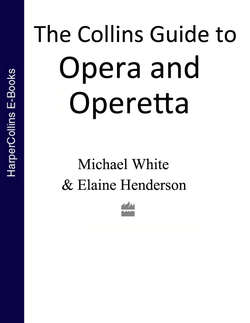Читать книгу The Collins Guide To Opera And Operetta - Michael White - Страница 38
ОглавлениеBenjamin Britten
(1913–76)
Paul Bunyan (1941)
Peter Grimes (1945)
The Rape of Lucretia (1946)
Albert Herring (1947)
The Little Sweep (1949)
Billy Budd (1951)
Gloriana (1953)
The Turn of the Screw (1954)
Noye’s Fludde (1957)
A Midsummer Night’s Dream (1960)
Curlew River (1964)
The Burning Fiery Furnace (1966)
The Prodigal Son (1968)
Owen ‘Wingrave (1970)
Death in Venice (1973)
Arguably the greatest English composer and certainly one of the greatest opera composers of the 20th century, Benjamin Britten was born, raised and effectively spent his whole life on the Suffolk coast in small-town circumstances which influenced his work – most obviously Peter Grimes, Albert Herring and The Little Sweep, which are all set geographically within a few miles of where he lived. The sea is a recurring theme in his music, along with the world of sleep and dreams, the sacrifice of innocence, and the idea of the social outcast. But the determining factor behind almost all these subject choices was his homosexuality, which found expression – as both a source of anguish and of profound creative energy – just below the surface of so many scores. From Peter Grimes onwards, his operas usually have a leading tenor role written originally for his lifelong partner, Peter Pears. Even beyond the opera stage, Britten was principally a vocal rather than symphonic composer. Major scores include the War Requiem, several song cycles (of which the best known is the Serenade for Tenor, Horn and Strings), the early Variations on a Theme of Frank Bridge, and a superb sequence of string quartets.
